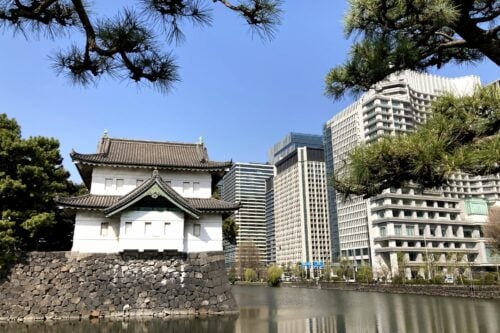Choosing a favorite baby name can feel intimacy and affectionate. When parents name their children, they put a lot of thoughts and consideration into it.
Share this link via
Or copy link
Below are navigation links that will take you to the main text and navigation menus.
26,551 first names, 70,620 last names, 333,585 kanji variations.
one of the best Japanese name search tools for your baby!

Have you ever heard “Kira-kira name”? In Japan, there is a controversial trend of the naming of your child a so-called “Kira-kira name”. In English, this translates to a “glittering name” or “sparkling name” is an unusual name. These names are unintelligible, as they use kanji characters that aren’t commonly used for people’s names, and don’t match the usual pronunciations.
Contents
Here is one example of a typical glitter name. It’s called “光宙”, meaning “lights up/ shining space”. Do you have any idea what this name reads?
It actually reads “Pikachu”. That’s right, the name comes from the hugely popular Pokémon Pikachu.
Glitter names are used only for the first name, for both boys and girls, not for the last name. The phenomenon is said to have been on the rise since the 1990s.
“Kira-kira” is an onomatopoeia used to describe sparkling, glittering, twinkling, etc. the way a lot of little things reflect light and twinkle. “Kira-kira” is usually used in a positive sense for pretty/ beautiful things, however, in this case, there is a bit of sarcasm involved.
“Kira-kira names” caused a well-known controversy in Japan is the “Devil-chan Naming Controversy”.
In 1993, a father submitted his son’s name to the city council as “悪魔”, meaning “Devil”. However, the name was rejected as there was a consideration that potentially could hurt the child’s future and it was not appropriate as a person’s name.
1. 翔馬 ( ぺがさす/ Pegasus ) meaning: 翔 flying, 馬 horse
2. 王様 ( キング/ King ) meaning: 王様 king
3. 天使 ( エンジェル/ angel ) meaning: 天使 angel
4. 純 ( ピュア/ Pure ) meaning: 純 pure, genuine
5. 野生 ( わいるど/ Wild ) meaning: 野生 wild
6. 主人公 (ヒーロー/ Hero ) meaning: 主人公 a main character
7. 本気 ( まじ/ Maji ) meaning: 本気 serious – “Maji” is commonly used slang for serious.
8. 偉人 ( ぐれいと/ Great ) meaning: 偉人 a great man/ a historical figure
9. 混沌(かおす/ Chaos ) meaning: 混沌 – chaos
10. 楽気(ラッキー/ Lucky ) meaning: 楽 easy, fun, 気 sprit, feeling
11. 愛猫(キティ/ Kitty ) meaning: 愛 love, 猫 cat
12. 泡姫 (アリエル/ Ariel ) meaning 泡 bubble, foam 姫 princes
13. 美富 ( びとん/ Biton ) meaning: 美 beauty, 富 wealth
– The name was taken from Louis Vuitton.
14. 黄熊 ( ぷう Pooh ) meaning: 黄 yellow, 熊 bear
– Obviously, the name comes from “Winnie the Pooh”
15. 今鹿 ( なうしか Nausicaä) meaning: 今 now, 鹿 dear
– Dear called in Japan shika. The name might be inspired by “Nausicaä of the Valley of the Wind” of Studio Ghibli.
It seems that parents want to give their children unique and one-of-a-kind names, influenced by anime, manga, movies and other forms of entertainment.
Perhaps they have the desire to give their children an advantage in today’s world, where individuality is increasingly important.
Parents are likely to put a lot of thoughts/ hopes into the naming of their children, however, many are a bit critical of the “Kira-kira” naming phenomena. A common criticism expressed is individuals are treating the children as if they are accessories. Some argue it is unacceptable to give a child a name that he/ she may be burdened with for the rest of their life. However, a child that does not like their glittery name could consider to change it or to use a different name in the future.
“Kira-kira name” could potentially harm the children’s education and employment opportunities. It has been said that it is always mistaken something that would be difficult to read, also they might cause to bullying or discrimination at school. Or there would be a risk of lowering their reputation for social impressions, which could put them at a disadvantage in their job hunting, etc. The name itself, as well as appearance and social status, could affect interpersonal evaluations.
It may seem like all the disadvantages, but there is one advantage that is quite important. It is easier for people to remember a “Kira-kira name” since they are very different from standard names. Also, it is probably easier to be recognized as an individual. This may be an advantage in a society that values the originality.
Recently, the naming “Kira-kira name” have gone beyond the trend to take hold.
What do you think about the “Kira-kira” naming in Japan?





Sort by Most Kanji Variations
This is the order of names with many variations of kanji.
Basically, names with more variations are more common and familiar to the Japanese.
Sort by Most Viewed
The names are sorted by the number of times they have been viewed on this site. This ranking is based on the behavior of users around the world, including Japan, so it does not mean that the names are commonly viewed by Japanese people only.
Please note that just because a name has been viewed more times does not mean it is a famous name in Japan.
What is Hiragana?
Hiragana is a syllabary used in written Japanese, which originated from the cursive style of Kanji.
What is Katakana?
Katakana is also a Japanese syllabary. Basically, the characters don't have any meaning by themselves, they only represent the sounds.
Japanese try to express the words came from foreign languages with the most similar sounds in Japanese using Katakana.
What is English Transcription?
English Transcription is a term used when translating Japanese names into English. It represents a romanised version of the name with the aim of reproducing the pronunciation as accurately as possible. English Transcription can also be used for name searches.
Japanese Style Nickname
In Japan, nicknames are commonly used to express familiarity and affection. Here are key features and contexts:
Shortened Forms: Names are often shortened for ease and intimacy, such as 'Yuki' from 'Yukiko' or 'Taka' from 'Takashi'.
Suffixes: Terms like 'chan' for girls and 'kun' for boys are added to names among close friends and family. However, 'chan' can also be used for boys during childhood. Additionally, among adults who are very close, like best friends, 'chan' may still be used to convey affection and familiarity. More Details
Usage and Cultural Aspects: Nicknames are typically used in informal settings among friends, family, or close colleagues, and are not suitable for formal or professional environments. The use of a nickname suggests a degree of intimacy and should reflect the nature of the relationship. Young people often demonstrate creativity in their social interactions by crafting unique nicknames.
Note: In Japanese, the long vowel sound is indicated by a special character called a "chōonpu" (長音符), which looks like a horizontal dash (ー). This character serves to extend the duration of the vowel sound immediately preceding it. For instance, in the name "あーちゃん" (A-chan), the "あ" (A) is extended, producing a prolonged "ah" sound, similar to the "a" in "father."
Households?
The names are sorted by the number of Japanese households where the surname is used.
The more households there are, the more famous and common the surname is.
About this site's data of last names
